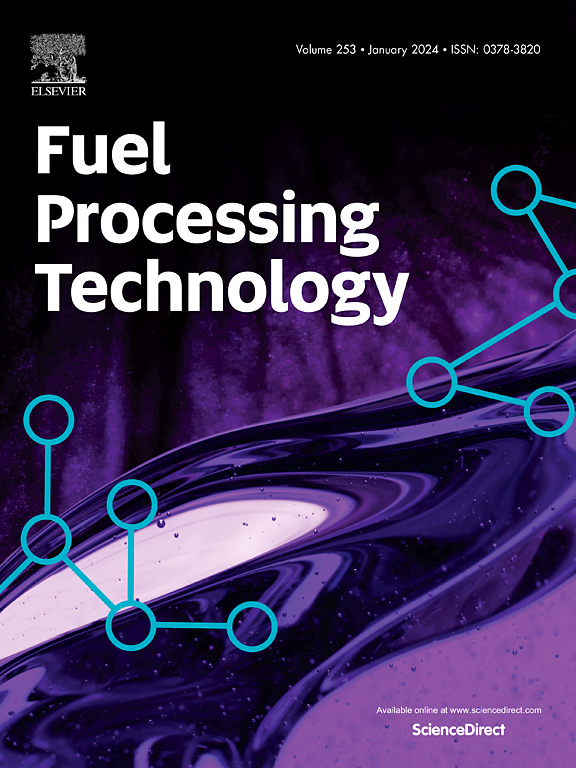A techno-economic assessment of power-to-gas to produce hydrogen by TALOS
IF 7.7
2区 工程技术
Q1 CHEMISTRY, APPLIED
引用次数: 0
Abstract
The transition toward a low-carbon energy system encourages academicians to research innovative energy solutions. Diversifying renewable energy sources ensures the effort to fulfil market demand comes into being. This study presents a comprehensive techno-economic assessment of Power-to-Gas technology to produce hydrogen using TALOS-WEC as energy converter from wave energy to electricity. Power-to-Gas is a technology that converts electrical energy into gaseous fuel and TALOS-WEC is a novel multiple degree of freedom wave energy converter developed by Lancaster University, UK. The system in the study utilises a decommissioned offshore oil platform and uses seawater as a raw material, which brings forward the advantage of abundance. The study considers separation, electrolysis, compression or liquefaction, and a transportation system. An economic analysis and economic potential study has been done for each system and then a levelized cost of energy analysis has been calculated. A process flow diagram of the plant can be seen for the purpose of visualising the system setup. The LCOE of the suggested technology is at 123.19 $/MWh and the cost breakdown shows that the decommissioned oil platform will cost the most at 32.5 M $/yr followed by hydrogen compression technology and TALOS at 1.6 M$/yr and 1.5 M$/yr respectively for the stated operating period. This study has shown optimistic results for the Power-to-gas technology, but further research and development needed for TALOS-WEC to become feasible for the system.
TALOS对电转气制氢的技术经济评估
向低碳能源系统的过渡鼓励学者们研究创新的能源解决方案。多样化的可再生能源保证了满足市场需求的努力。本研究对利用TALOS-WEC作为从波浪能到电能的能量转换器的电能制氢技术进行了全面的技术经济评估。Power-to-Gas是一种将电能转化为气体燃料的技术,TALOS-WEC是英国兰开斯特大学开发的一种新型多自由度波能转换器。本系统利用退役海上石油平台,以海水为原料,具有丰度优势。该研究考虑了分离、电解、压缩或液化以及运输系统。对各系统进行了经济分析和经济潜力研究,并进行了能源平准化成本分析。为了使系统设置可视化,可以看到工厂的工艺流程图。建议技术的LCOE为123.19美元/兆瓦时,成本细分显示,在规定的运营期间,退役石油平台的成本最高,为3250万美元/年,其次是氢压缩技术和TALOS,分别为160万美元/年和150万美元/年。这项研究显示了电能制气技术的乐观结果,但要使TALOS-WEC系统变得可行,还需要进一步的研究和开发。
本文章由计算机程序翻译,如有差异,请以英文原文为准。
求助全文
约1分钟内获得全文
求助全文
来源期刊

Fuel Processing Technology
工程技术-工程:化工
CiteScore
13.20
自引率
9.30%
发文量
398
审稿时长
26 days
期刊介绍:
Fuel Processing Technology (FPT) deals with the scientific and technological aspects of converting fossil and renewable resources to clean fuels, value-added chemicals, fuel-related advanced carbon materials and by-products. In addition to the traditional non-nuclear fossil fuels, biomass and wastes, papers on the integration of renewables such as solar and wind energy and energy storage into the fuel processing processes, as well as papers on the production and conversion of non-carbon-containing fuels such as hydrogen and ammonia, are also welcome. While chemical conversion is emphasized, papers on advanced physical conversion processes are also considered for publication in FPT. Papers on the fundamental aspects of fuel structure and properties will also be considered.
 求助内容:
求助内容: 应助结果提醒方式:
应助结果提醒方式:


